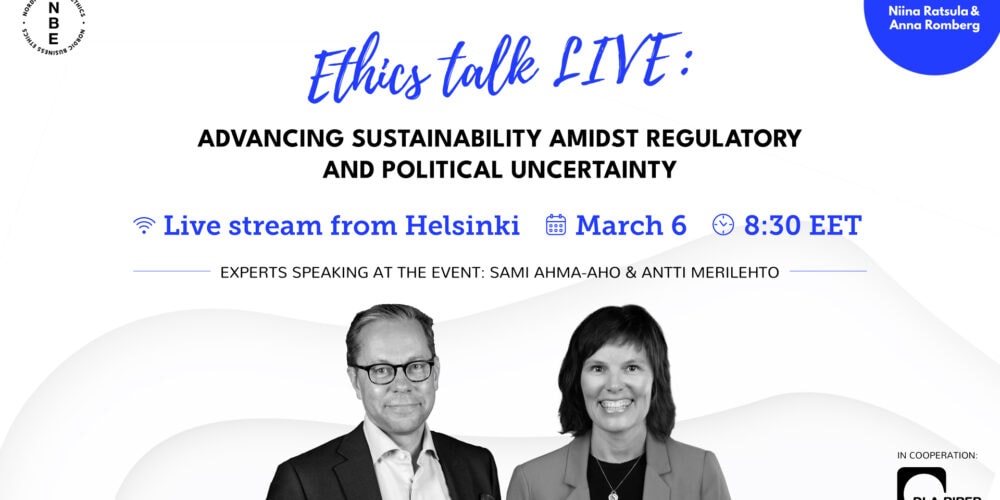Greenwashing: The dark side of ESG
In this blogpost, Dean Woodrow, an Analyst at Frank Partners discusses greenwashing in the ESG context. The blogpost is co-authored by Chris Werner, a Managing Partner at fp.
What is greenwashing?
“Greenwashing” is a term used to describe efforts to make a product, company, or investment seem greener than it truly is. With corporate, consumer, regulatory, and investor demand for environmentally-sound practices skyrocketing, there is a massive financial and reputational incentive for companies to tote their sustainable virtues whenever they can. Problems begin to arise, however, when a company’s “green” claims are stretched too far.
To most people, the term “Greenwashing” is rather self-explanatory, being an adaptation of the term “whitewashing”, which is synonymous with a cover-up, or an effort to hide or distract attention from unpleasant facts. Greenwashing can often be seen as an attempt to do just that. For example, a petroleum company might be accused of greenwashing if they focus a disproportionate amount of their advertising and marketing material on the sustainable parts of the business, despite green energy only making up a small percentage of the company’s profits.
Greenwashing can be far more than misdirection, with perhaps the most notable recent example of extreme greenwashing being the Volkswagen emissions scandal of 2015, where emissions data was deliberately falsified to allow VW vehicles to circumvent emissions regulations. Greenwashing can also be more ambiguous. Is it greenwashing for a company to announce lofty carbon-neutral goals before they have an action plan in place? Or for a company to find new green claims to make about an old product? With public and regulatory scrutiny on the rise, corporations which loiter in a greenwashing grey area are finding their positions suddenly more precarious.
Why is it relevant in an ESG context?
Greenwashing has become far more than a dirty word thrown around purely by environmental activists. Companies with truly green initiatives to boast of may take issue with their competitors fluffing up their sustainability claims. Environmentally conscious consumers likewise do not like being misled into thinking products or investments are greener than they are. In any case, with environmental, social, and governance (ESG) due diligence becoming the norm, greenwashing is not flying under the radar as well as it used to.
Indeed, in extreme cases, greenwashing can even amount to fraud – something regulatory agencies take far more seriously than ambiguous advertising.
Earlier this year, Deutsche Bank and its asset management subsidiary were raided by German officials on the suspicious that the sustainability claims they made regarding their investments were overstated, and possibly amounted to investment fraud. These allegations are all the more serious considering that sustainable investment in Europe has increased to cover some 273 billion Euro, up nearly 400% from just a few years ago.
How can greenwashing be avoided?
In a word: context. Inadvertent greenwashing is quite easy to avoid, so long as claims are contextualized by clearly stated, concrete terms and data whenever possible. Many of the buzzwords used to describe sustainable practices like “natural”, “green” or environmentally friendly” are already rather vague, and the discerning consumer or investor will already be looking for more concrete information.
Communicating exactly what makes these buzzwords applicable is the key here:
- What certifications or data can back these claims up?
- How do these practices compare to industry standards?
- What specific steps will be taken to achieve a green goal?
Beware also of selective greenwashing, where less green areas of the business or portfolio are left to hide behind the praise of the greener areas. There is a tendency to think of these things in terms of positive and negative. “Here are the parts that are green, and here are the parts that are not.” An alternative would be to think in terms of, “here is what is green today, and here is what will be green tomorrow.” By acknowledging the less-green aspects of a company or portfolio, you not only avoid allegations of greenwashing but also reframe negatives into opportunities. The key then, of course, is to be clear in exactly what your transformation strategy will be.
What are the dangers of greenwashing in ESG?
Greenwashing in ESG presents its own unique challenges to investors and companies alike. A significant portion of these challenges come in the form of regulatory action. German authorities are not the only ones to have taken a greater interest in greenwashing in ESG investing of late. The European Commission has recently launched an initiative on substantiating green claims, as have the Financial Supervisory Authorities of Sweden, Finland, and Denmark. The SEC has likewise established an ESG enforcement taskforce to identify violations in disclosure and compliance related to ESG funds. Furthermore, investors are also gaining access to a slew of online tools with which they can assess the climate impacts of their investments.
ESG is, currently, not a standardized system of assessment but rather is based on numerous criterion which are applied differently depending on who is doing the assessing.
The arbitrary nature of ESG leaves room for interpretation. This means that what may be considered green to one person could be greenwashing to another.
For example, how much of an investor’s portfolio or a corporate conglomerate’s activities can be tied up in ESG-incompatible industries like petroleum or weapons before the fund itself cannot be labeled ESG? If your answer is “none”, then you may find yourself at odds with the majority of ESG funds. Only 10% of German ESG funds are totally free of controversial assets like defense contractors and petroleum companies. In other words, we are back in the grey area of greenwashing.
While regulators may be inching towards a standardized assessment of ESG, we are not quite there yet. For now, ESG investors may need to rely more heavily on independent verification than industry labels, and ESG funds must contend with the fact that they are being held to a non-standardized standard. Thankfully, avoiding and identifying greenwashing remains a more straightforward process. While vague buzzwords may abound, the details are becoming ever more important. Both investors and funds alike will need to look for specifics to report on. Corporations have a unique opportunity to make this process even simpler by preventing greenwashing at the source. By contextualizing their green endeavors and focusing on transparent, plain-spoken descriptions of their sustainability initiatives, they can help investors and funds gauge how green their investments are.
About fp Frank Partners: fp is an independent boutique risk consultancy and a leading provider of high quality ESG due diligence and M&A advisory services globally. fp evaluates ESG risks and opportunities and delivers consulting services to investors and corporates seeking to improve their ESG and compliance risk management and mitigation.



